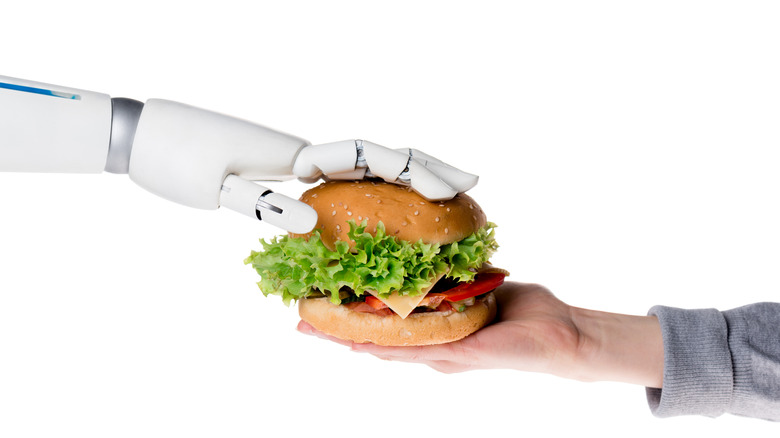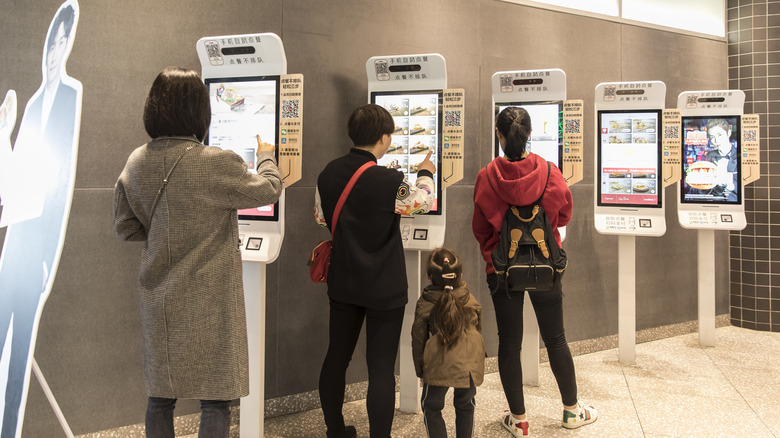You're Going To Be Seeing A Lot Of AI In Fast Food. Here's What That Means For The Industry
The fast food industry is taking major strides to incorporate the use of artificial intelligence in the way you experience your quick meals. If you haven't noticed already there are quite a number of subtle and not-so-subtle advancements being made right under your fast-food-loving nose. Although these processes are never full-proof — there have been plenty of TikTok videos showcasing epic AI ordering fails — this type of technology can strive to create more efficiency within the industry, but it may also put the jobs of human workers at risk.
Having AI featured more prominently in these types of environments will hopefully make the ordering process smoother with less chance for human error while cutting down on rising labor costs in the industry. According to the restaurant consultancy firm Aaron Allen & Associates, the integration of robotics into restaurants could actually help to cut up to 70% of these costs.
These money-saving machines can run the gamut of technology from self-serve kiosks utilized by McDonald's which can save the customer from unnecessary wait times standing in line to AI-integrated voice technology which handles your order via telephone or through specialized drive-thrus so that a real-life employee is not necessary. These types of tech ensure that orders are being taken accurately and that promotions and upgrades to increase sales are never missed.
How does AI technology affect those who work in the fast-food industry?
In the world of quick-service restaurants efficiency is a major key to success. AI enhancements can increase production and cut labor costs simultaneously so it's easy to see why most restaurants are swayed to adopt this technology. However, integrating AI either at a small level or in a more predominant role could mean the end of thousands of jobs. Technology is already taking over roles like hosts, drive-thru attendants, and even baristas. Although it seems there may still be a need for upper-level managerial roles in a new technology-based future, up to 82% of restaurant jobs could be replaced including serving, cooking, and meal preparation positions, according to Aaron Allen & Associates.
In a Golden Corral restaurant in West Virginia, for example, robots took on a bussing role, effortlessly taking dishes from the dining room and delivering them to the dishwashers in the kitchen, according to WSAZ News Channel 3. These robot workers are able to move about the restaurant without bumping into guests while saving human workers time which can be spent on customer service instead of menial tasks. Plus, the restaurant reported that dishwashers actually worked more hours as the robots were so efficient.
In fact, this is another area in which AI advancements can benefit employers. Because the technology can fill in roles that are not attractive to human employees, the restaurant industry — which has a high turnover rate of nearly 43%, according to POS USA — can also save on money spent enticing human workers with higher wages and costly benefits. This scenario is certainly attractive to restaurant owners looking to lower their operating costs so it's likely you'll see more restaurants putting their dollars toward experimenting with AI technology instead.

